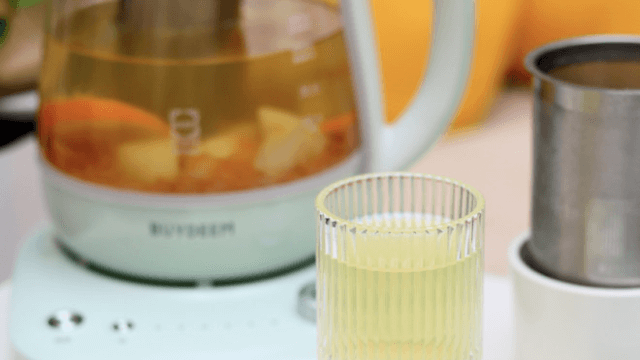Although, we all know that drinking tea is beneficial to the body and mind, but the so-called too much is too little, if you do not pay attention to the details and habits of drinking tea, but may be counterproductive, health care can not be hurt!

Diseases and tea drinking
Stomach problems
Tea contains more caffeine, and the theophylline in tea will make the cells of the stomach lining secrete a lot of stomach acid, and the stomach acid will affect the healing of the ulcer surface, aggravate the condition, and produce pain and other symptoms. It also counteracts the efficacy of certain antacid drugs and even aggravates the condition, so tea should not be consumed during episodes of gastric disease.
Liver disease
Most of the caffeine in tea needs to be metabolised by the liver. If the liver is sick, drinking too much tea, which exceeds the liver's ability to metabolise it, will damage the liver tissue.
Gout
People with gout should reduce their exposure to purines, tannins, seafood and other foods.
Green tea, green tea and other teas contain a certain amount of tannic acid substances, so drinking tea during a gout attack may aggravate the condition, and it is also not advisable to drink strong tea or tea with a long steeping time.
Cardiovascular diseases
Drinking tea can lower the concentration of cholesterol, reduce the degree of atherosclerosis and enhance the elasticity of capillary walls, so it is an excellent drink to prevent and treat cardiovascular diseases.
However, for patients with cardiovascular diseases, drinking large amounts of strong tea will increase ventricular contraction, speed up the heart rate and raise the blood pressure excessively, easily causing abnormalities such as palpitations, shortness of breath and chest tightness, which may cause danger in serious cases.
Insomnia
Insomnia patients should not drink tea before going to bed, regardless of the cause of insomnia, should not drink tea before going to bed, because the caffeine and aromatic substances in tea have a stimulating effect.

Iron deficiency anaemia
Iron is one of the raw materials for the production of red blood cells, and the tannic acid in tea can affect the absorption of iron and reduce the production of red blood cells, making it easier to aggravate anaemia. Therefore, pregnant women, lactating mothers, women with heavy menstruation and teenagers should not drink tea.
These types of tea are best not to drink
1. Strong tea
Tea that is too strong is likely to cause heart discomfort because it also contains caffeine and theophylline.
At the same time, if you drink a lot of strong tea, the tannic acid in it will react with the iron in the food and produce new substances that are difficult to dissolve, which will prevent the absorption of iron.
2. Mouldy tea
Mouldy tea is caused by the contamination of microorganisms such as Penicillium and Aspergillus, and the tea broth produced by mouldy tea no longer has the aroma of tea, and drinking it will cause some damage to the human body, such as causing dizziness and diarrhoea.
When the tea is damp and mouldy, white mouldy spots can be seen on the surface, and the smell of damp and mouldy is more pronounced, especially when brewing.
3. Tea with a string smell
Tea contains terpenes, the structure of porous, very easy to absorb odours, and other smelly things put together after a period of time, it is easy to change the smell. Some flavours contain toxins, such as the smell of paint and camphor, which can cause harm to the human body.
Advice: When storing tea, try to isolate smelly foods to prevent stringing of flavours. Special attention should be paid to the different grades and varieties of tea, which should also be stored separately.
4. Long brewing time
Tea brewing time is too long, not only the tea soup is dark, poor taste, lose tasting value, and the vitamins and amino acids in the tea leaves due to oxidation and reduce, will make the tea soup nutritional value greatly reduced.
In addition, if the tea is left for too long, it will be easily contaminated by the surrounding environment and the number of microorganisms in the tea broth will be high, which is very unhygienic.
5. Overly hot tea
Tea is generally brewed with boiling water, but it is not recommended to drink it directly when it is too hot. Otherwise, it will easily burn the mucous membrane of the mouth and esophagus, causing ulcers, which may lead to oral cancer and esophageal cancer over time. The temperature of the tea should preferably be between 56°C and 60°C, which is more beneficial to health.

6. burnt tea
When tea leaves are over-roasted during the production process, a burnt flavour is produced. The effective nutrients and certain components that determine the flavour of tea leaves are more damaged and may also contain carcinogens. Therefore, burnt tea is not suitable for consumption from both nutritional and food safety perspectives.
7. Overnight tea
When tea is left overnight for too long, traces of amino acids, sugars and other substances can become nutrients for bacteria and moulds to grow.
In addition, the tea contains a variety of nutrients such as tea polyphenols and vitamins will also be placed too long for oxidation reactions, resulting in a decline in the antioxidant content of the tea, making its nutritional value and health benefits greatly reduced.
In short, although the tea is a health thing, but also according to their own actual choice, otherwise be careful not to health instead of adverse health.






